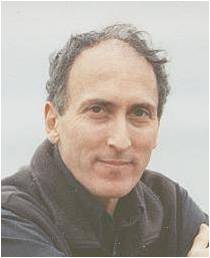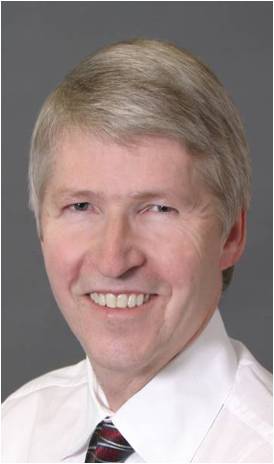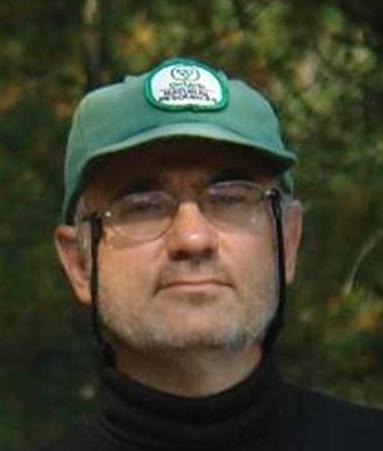Speakers, Elmvale Water Festival 2007
Peter Dillon
|
|
Peter Dillon completed his M.Sc. in chemistry and his Ph.D.
in zoology at the University of Toronto in 1974. He worked for over
twenty years in the provincial Environment Ministry, where he led the
aquatic research programme. He established the world-famous Dorset
Research Centre, where much of the research was carried out that led to
sulphur emission controls and acid rain reductions in Canada. He is
currently a professor at Trent University in both the Chemistry
Department and the Environmental and Resource Studies programme, and is
the Director of the Worsfold Water Quality centre, the country’s
leading laboratory for developing trace analytical techniques. He is a
Fellow of the Royal Society of Canada, winner of the Romanowski Medal
of the Royal Society and numerous other awards. Email: pdillon[at]trentu[dot]ca |
Tony Clarke
|
|
Tony Clarke is the founder and executive director of the Polaris Institute. He has
a Bachelors degree in political science from the University of British
Columbia plus a Masters and a Doctoral degree from the University of
Chicago in the field of social ethics. In 2005, he was co-recipient of
the Right Livelihood Award for his work on international water and
trade issues. Internationally, Tony has been a keynote and panel
speaker at conferences on water issues in Europe, Africa and Asia. He
played an active role at the World Water Forum in Kyoto in 2003, led in
the formation of the People’s World Water Movement launched in New
Delhi in 2004, and assisted the movement to resist the privatization of
water at the World Water Forum in Mexico City in March, 2007. He has
authored and co-authored 9 books, including BlueGold: The Corporate
Theft of the World’s Water, which has been published in 40 countries,
and Inside the Bottle: An Expose of the Bottled Water Industry. Email: tclarke[at]polarisinstitute[dot]org |
Colin Perkel
|
|
Colin Perkel has been senior correspondent for The Canadian Press (CP) for more than
15 years and is CP branch president of the Canadian Media Guild. He
extensively covered the Walkerton Water crisis from the first
revelations through to completion of the official inquiry. He is the
author of the critically acclaimed book on the tragedy, ‘Well of Lies,’
which chronicles the events that led up to and followed what has been
described as one of the country's worst public-health disasters. |
Ron Martin
|
|
Ron Martin is Professor of Chemistry at the University of Western Ontario and an
Associate Professor of Anthropology. He studied at St. Francis Xavier
University in Antigonish, Nova Scotia, and did his Ph.D. at UWO. He has
been Visiting Scientist at Dow Canada Inc., in Sarnia, Ontario,
Visiting Fellow at Griffith University, Brisbane, Australia, Visiting
Lecturer at Auckland University, Auckland, New Zealand, Visiting Fellow
at the University of Arizona at Tucson and at Tohoku University,
Sendai, Japan, a Research Associate at the South Australia Surface
Technology Centre, as well as Visiting Researcher and now Adjunct
Research Associate at the Ian Wark Research Institute, University of
South Australia, Adelaide. Prof. Martin specializes in the use of
advanced analytical techniques (Secondary Ion Mass Spectroscopy,
Scanning Electron Microscopy, X-ray Photoelectron Spectroscopy, and
Synchrotron Radiation Analysis) for studying environmental problems.
Prof. Martin is the recipient of many awards, including the OCUFA
Teaching Award and the Edward G. Pleva Award for Excellence in Teaching. Email: rrhm[at]uwo[dot]ca |
Ray Clement
|
|
Ray Clement earned his Ph.D. in analytical chemistry from the University of
Waterloo in 1981. He acted as supervisor of the Dioxin Laboratory of
the Ontario Ministry of Environment, Laboratory Services Branch,
eventually attaining the position of Senior Research Scientist. He has
published over 160 papers and technical reports concerning the
analysis, sources, and fate of toxic organics in the environment, and
has published five books. Dr. Clement received the Maxxam Award for A
Distinguished Contribution in the Field of Analytical Chemistry and the
Outstanding Leadership in Environmental Education award from the
Ontario Society for Environmental Education. He currently serves on the
boards of directors for the Canadian Society for Chemistry, where he is
assigned the professional status portfolio, and the Environmental
Careers Organization of Canada. He is a prolific speaker, proactively
encouraging environmental education at all levels. Email: Ray[dot]Clement[at]Ontario[dot]ca |
William Shotyk
|
|
William Shotyk received a B.Sc. (Agr.) in Soil Science and Chemistry from the Ontario
Agricultural College of the University of Guelph in 1981, a Ph.D. in
Geology from the University of Western Ontario in 1987, and a
Habilitation in Geochemistry from the University of Berne, Switzerland,
in 1995. After twelve years at the University of Berne, he became
Professor at the University of Heidelberg and Director of the Institute
of Environmental Geochemistry, positions he has held since October of
2000. His research group is responsible for Inorganic and Radiogenic
Isotope Geochemistry. A member of the American Chemical Society,
American Geophysical Union, and the Geochemical Society, Professor
Shotyk has published more than 150 articles, mainly in refereed
journals, but also in conference proceedings, books, and newspapers.
Prof. Shotyk founded the Elmvale Foundation to foster, encourage and
promote environmental science education, and to support relevant
research. The Elmvale Water Festival is a fundraising activity to
support the work of the Foundation. Email: bill[at]elmvale[dot]org |






